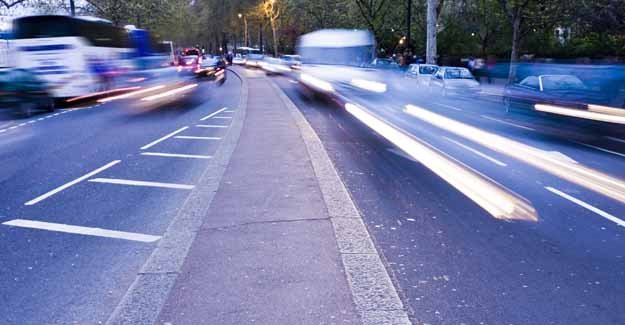First came the ice and snow. Then came the damage – gaping potholes and cracked road surfaces. Now comes the big question. Is there the money to repair them?
Hard-pressed motorists contribute £28 billion* to the Treasury each year through fuel duty and road tax, but only a fraction of this is spent on road maintenance, just £5 billion for the entire network.
Of this a mere £653 million** is granted to councils in England for maintaining local roads – and even that doesn’t have to be spent on repairs. In fact it doesn’t have to be spent on roads at all.
A report commissioned by the Royal Automobile Club Foundation*** called Taxes, Charges and Investments**** now reveals the full extent of the subsidies given to bus and rail passengers at the expense of road-users, and instead of Government spending on vital services such as highway maintenance.
For every mile they travel by car motorists contribute a net 4p to the Treasury. Yet passengers on local bus services cost the Treasury 6.4p for each mile travelled and rail passengers are more expensive still – benefiting by a massive 20.8p per person per mile.
Today (27th) the Foundation is urging the Government first to make emergency, ring-fenced funding available to local authorities for road repairs to get Britain moving again, and then strike a fairer balance between what Whitehall takes from drivers and the amount it puts back into the nation’s roads.
The Foundation also regards spending on repairs and road building as a way of helping stimulate Britain’s ailing economy.
Foundation Director Professor Stephen Glaister said, “For many years there has been a stark imbalance between what motorists contribute to the Exchequer and what they get in return. The car and lorry are central to economic life and it is cynical of the Government to ignore the needs of drivers who use the network not only to get to and from work, but also for business travel.”
“82% of businesses describe the car as central to their operations. Turning a blind eye to the dire state of our roads is not only creating misery for motorists but is threatening our long-term economic recovery. If the Government wants to get Britain working again then what better way than to spend some money on large-scale infrastructure projects.”*****
ENDS
Notes:
* The £28 billion paid by motorists in duty each year comprises £23 billion of fuel duty and £5.2 billion of vehicle excise duty (road tax). In addition £12 billion of VAT is paid by households on purchases of motoring goods and services.
** The figure of £653 million is the amount central government allocated to local authorities in 2008/9 as the formulaic maintenance budget for that financial year. This money is not ring-fenced. http://www.dft.gov.uk/pgr/regional/ltp/capital/ltpsettle07/capitalsettlement0809.xls
*** The RAC Foundation is an independent motoring charity that researches the economic, mobility, safety and environmental issues relating to roads and the use of motor vehicles.
**** Taxes, Charges and Investment’ is the eighth in a series of background papers authored by David Bayliss OBE which contributed to the Foundation’s Roads and Reality Report published last year. It can be downloaded here  Background paper 8 – Transport Taxes, Subsidies and Investment (Feb 09).pdf (325.05 KB 26.02.2009 10:41)
Background paper 8 – Transport Taxes, Subsidies and Investment (Feb 09).pdf (325.05 KB 26.02.2009 10:41)
***** RAC Foundation and British Chambers of Commerce 2007 report – Business Travel: Choice or Necessity?
Local maintenance problems can be reported to http://www.fixmystreet.com/


